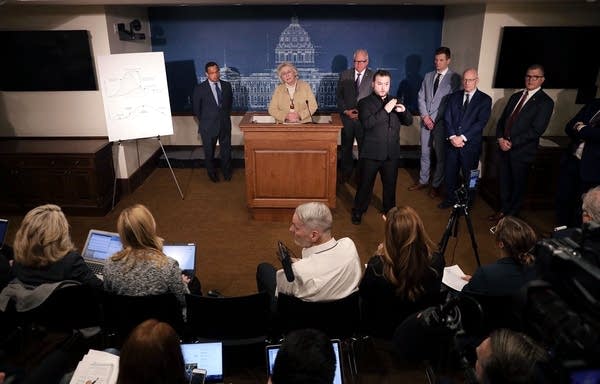Governor’s emergency powers could change after COVID-19 crisis

Minnesota Commissioner of Health Jan Malcolm (center) speaks during a press conference on March 13, 2020, where Gov. Tim Walz moved to limit gatherings in Minnesota to fewer than 250 people and declared a "peacetime emergency" to heighten the states readiness to respond to COVID-19.
Evan Frost | MPR News
Go Deeper.
Create an account or log in to save stories.
Like this?
Thanks for liking this story! We have added it to a list of your favorite stories.


